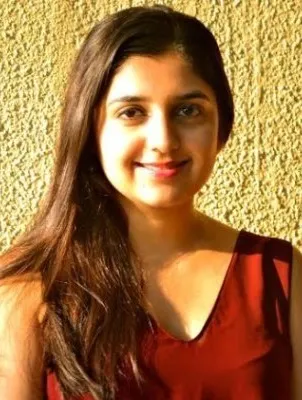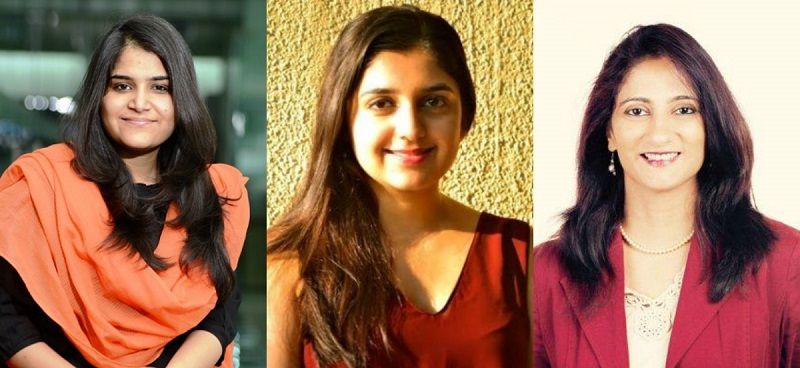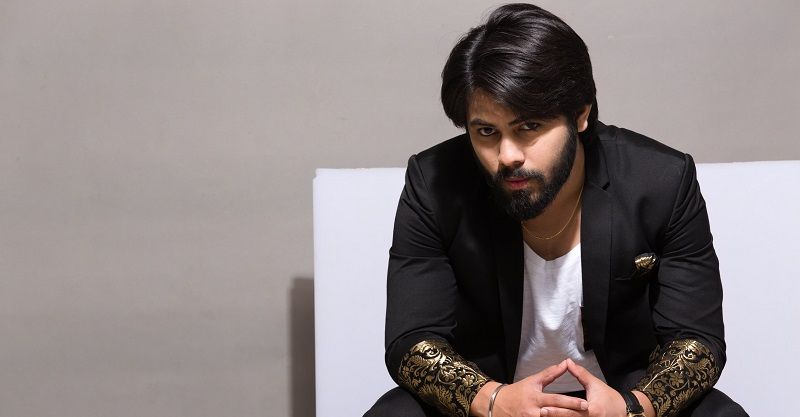The power of one – Learnings from three ‘solo’ women founders
When Zoya Brar (26) started up in 2012, she was barely 23 years old and had no clue about the sector she was foraying into. But after working for two years with Google, she realised she didn’t want to work for anyone but herself. The entrepreneurial bug had bitten her, and what started as a casual conversation one day after work eventually emerged as a clinical diagnostics and laboratory startup called CORE Diagnostics.

Today, terms like ‘histopathologists’ roll easily off her tongue when she talks about specialised doctors who examine patients to see the manifestation of disease, joking that most of her initial knowledge came from searching on Google.
There were several barriers to entry in the sector, but there were also little odds that worked in her favour. First was the nature of the niche segment she was entering, which required specialists. She says that out of India’s 1.2 billion population, there are a mere 800 histopathologists. The second was the need for high-end facilities housing the sophisticated technology needed to support the diagnostics work.
CORE (Cardiology, Oncology, Reproductive, Endocrine) Diagnostics clocked investments of $5 million within the first six months of starting operations from Silicon Valley-based Artiman Ventures, and acquired Palo Alto-based diagnostics chain OncoMDx to solve a problem with resources.
Today, the firm employs more than 104 people and caters to 180 hospitals, reaching out to 30,000 patients. It has completed over 50,000 tests (after going commercially live in 2013) getting requests from 59 cities.
However, what’s surprising is that CORE Diagnosis doesn’t have any active offices. As an entrepreneur, Zoya is an ardent believer in having an open culture with no hierarchy. She says that there were times when people questioned her decisions
People asked me if I was sure and knew the industry well, questioning me on how could I get such senior specialists to sit on the same table with junior doctors.

But it all worked out in the long run. Her idea was to make the work culture like Google, in the process building the right work ethos, and fostering a culture where making mistakes were alright.
However, was starting up young and with no expertise a hindrance? Zoya denies this saying that it worked in her favour, leading people to be more comfortable with her leadership, holding no ego in the process. She laughs and says that for the longest time, she was youngest in the team. On the other hand, the investors were comfortable, since they were from Silicon Valley and were used to dealing with entrepreneurs her age.
For this young woman, her biggest achievement is not sky-rocketing metrics or having an active presence in the US, but rather holding the lowest attrition rate, which she claims to be less than three per cent. Moreover, what keeps her awake in the night is the sheer possibility of changing someone’s life by giving them the right treatment through her skilled diagnosis work.
It is said that success comes with a lot of loneliness and Zoya accepts this. She believes that there are times when it gets lonely at the top, but also that by nature there will always be one individual who would have to execute and embody the spirit of the company. She adds
“There can be two leaders, but there will always be one executor amongst those two.”
And in her own words, she learned about leadership through ‘osmosis’ where she saw her mother (also a successful healthcare professional) and imbibed the necessary qualities she had to.
In hindsight, she believes that what helped was her sheer commitment to create a world-class team. According to her, A-grade leaders always hire A-grade people, meaning that if a great leader will always hire someone better than themselves to fill in the CEO’s shoes, they may not require a co-founder.
Sanna Vohra, Indear.in

Believing in the same philosophy is Sanna Vohra (25), Founder and CEO, Indear.in, which is an inspiration, planning, and shopping portal for Indian weddings. Sanna was 15 when she left India to pursue her schooling in The Philippines. She went on to graduate from Brown University in the US. However, when she came back to startup in India in 2014, she felt the lack of a network.
“I was open to get co-founders, but there didn’t seem to be anyone who fit the bill”. Instead, she found it more fruitful to start off rather than search for the right person. Therefore, instead of looking at a network, Sanna made a list of skill sets, which she required her core team to possess and started her lookout.
At present, with a strong core team in place, her company is growing at 25-30 per cent, month on month. Sanna feels she managed pretty well without a co-founder, and gives due credit to her team. In hindsight, this entrepreneur feels that not having a co-founder worked favourably, making her more thoughtful of the talent and core team she was hiring. She believes:
“The co-founder relationship is key, but don’t miss out on starting up just because of that. To be fair, it isn’t all rosy and can be really challenging sometimes, making certain decisions lonely and tough to make. But on the bright side, sometimes having a lot of co-founders can also be messy. So, in all honesty, what you really need is not a co-founder but the right support system to help you in the process.”
On the other hand, Zoya and Sanna’s similarities of running an organisation also extend to the cultural framework. Sanna believes that as an entrepreneur, you have to live your culture and organisation with tons of enthusiasm.

She thinks that being a solo woman founder, functioning in a woman-centric business has not just equipped her with better insights and understanding of her customers, it has also helped to create a congenial environment for women employees, making them feel more comfortable professionally and personally. According to her, employees make decisions based on either the fear of their bosses or the love for their organisation. She strives to provide the latter where the organisation backs and supports the employees bringing passion and joy into working.
“You’ve to care about creating a good environment and have to protect your culture,” says Sanna.
On the subject of leadership, she admits
“There aren’t any qualities pertaining to what a woman brings to the table or what a man does. There are only qualities, which you need to know as a leader, and to know those (qualities), you need to know yourself, working according to that.”
Anu Acharya, MapMyGenome
In a similar vein, Anu Acharya, Founder and CEO of MapMyGenome says:
“There are good entrepreneurs and bad ones, not male or female entrepreneurs.”

Anu started her tryst with entrepreneurship back in 2000 when she and her husband started Ocimum Bio Solutions. She said that in her case, there was a need to have a solo founder (for MapMyGenome) to give a separate character to the company, while avoiding two levels of authority, making her step up to the position of being the sole CEO.
However, they were lucky to have a core team in place from her previous venture to help out in the new innings. But, even for her, having the right culture was a big part of the process. She accepts that seeing her as a woman founder, a lot of women subsequently joined the organisation at senior levels.
Of biases and more
With younger and younger individuals joining the startup bandwagon, do biases still exist for age or gender?
Sanna has an interesting take on it saying that perceptions do matter to a certain extent with regard to biases, and tells entrepreneurs
“When you meet investors or fellow entrepreneurs having a bias relating to your age and gender, you should know how to react to them. This is where your perception and judgement comes into play. However, the best thing to do is build something and create value, where if you have built something tangible, people are forced to judge you according to that.”
Moreover, she believes that the number of women in board rooms and those getting funded speak for themselves about the gap. She says that in Tier 1 cities, there is neither a lack of qualifications or awareness, thus leading to lack of confidence being the reason a lot of women are not taking up entrepreneurship. Thus, as a woman in the ecosystem, she feels it is essential to boost other women to come forward to take the baton, even if it means starting mentorship programmes or opening more women-oriented funds.

While Zoya never felt a bias due to her upbringing, she urges entrepreneurs to startup
“One shouldn’t take much time thinking about starting up or not, rather one should just start up if they want to. Regardless of having a co-founder or not.”
She further drops a lesson to young entrepreneurs saying
“Don’t hesitate or be embarrassed to ask a question. If you don’t, who will?”
Anu, who awarded Young Global Leader by the World Economic Forum in 2011, and has 16 years of experience of starting up says
“Women might feel obligated to do certain things because of expectations. It is better for them to set the right expectations for themselves first before anybody else. Women usually feel the need to do everything. However, it is essential to realise that you’ve to give up something to do something well. So it is not necessary to do everything; as a woman your happiness is extremely important.”
While leaving, Anu does offer up a gem of inspiration for the young entrepreneurs in the ecosystem
“As entrepreneurs, it is essential to understand that you have to run your business in such a manner that you get money from your consumers, rather than your investors.”
Referring to the funding mentality of new-age entrepreneurs, she says that she ran her first business as the CEO without any investment for the first six years of starting up.
This Women’s Day, we at YourStory celebrate the spirit of these and many other solo women entrepreneurs who are the gems of the Indian entrepreneurial ecosystem. These are the entrepreneurs who inspire other individuals to start up.
We might not have been able to incorporate your favourite solo women entrepreneurs, but do write to us in the comment section about your favourite women entrepreneurs of the ecosystem.
Read about many other solo women entrepreneurs here.








![[Startup Bharat] How Malabar Angel Network is boosting North Kerala’s startup ecosystem](https://images.yourstory.com/cs/2/79900dd0d91311e8a16045a90309d734/MANBuilding1574227798889jpg)


